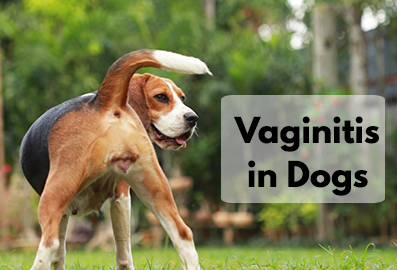Vaginitis in Dogs
Hello Visitor, welcome to reviews and news, today I have share about “Vaginitis in Dogs” and also I have discuss any my opinion about causes of vaginitis, symptoms of vaginitis in dogs, treatment and management and some Frequently question and answers.
Introduction to Vaginitis
Vaginitis in Dogs, The basics of canine anatomy Dogs, just like humans, have complex reproductive systems. Female dogs have a vagina, which is connected to the uterus, which in turn is connected to the ovaries.
Understanding the basic anatomy
can help in grasping the concept of vaginitis.
What exactly is Vaginitis?
Vaginitis is the inflammation or infection of the vagina. In dogs, it can occur at any age and for various reasons. Not only is it uncomfortable for your pet, but left untreated, it can lead to more serious health issues.
Causes of Vaginitis in Dogs
Bacterial infections
Just like humans, dogs have a balance of good and bad bacteria in their bodies. When this balance is disrupted, it can lead to an overgrowth of harmful bacteria causing vaginitis.
Foreign bodies and irritants
Something as simple as a piece of stick, grass seed, or even accumulated dirt can cause irritation and subsequently, vaginitis. Ever noticed how dogs are curious creatures? That curiosity sometimes leads to problems!
Hormonal changes
Particularly in unspayed female dogs, hormonal changes can create an environment conducive for bacterial growth.
Urinary tract issues
Dogs with urinary issues, such as infections or incontinence, can be prone to vaginitis. Remember, everything is connected, and a problem in one area can often lead to another.
Symptoms of Vaginitis in Dogs
Recognizing common signs
Common signs include licking the vaginal area excessively, discharge, redness, swelling, and sometimes an offensive odor. It’s a bit like when we humans feel discomfort – we react. Dogs are no different.
When to seek a vet’s advice
If your dog shows persistent symptoms or seems in pain, it’s high time to seek professional advice. After all, who wouldn’t want the best for their furry friend?
Treatment and Management
Medication and interventions
Depending on the cause, vets might prescribe antibiotics for bacterial infections, creams for irritation, or even surgery in cases where foreign bodies are involved.
Preventative measures
Regular grooming, cleaning, and monitoring of your dog’s genital area are essential. Think of it as the same care and attention we give to our hygiene.
Conclusion and Key Takeaways
Understanding your dog’s health is paramount. Vaginitis, though common, should not be taken lightly. By recognizing symptoms early and ensuring proper care, we can guarantee our dogs live a happy, healthy life. Isn’t that what man’s best friend deserves?
FAQs
- Can male dogs get vaginitis?
- No, only female dogs can get vaginitis as it’s an inflammation or infection of the vagina.
- How long does it take to treat vaginitis in dogs?
- The duration of treatment depends on the cause and severity. It can range from a week to a few weeks.
- Can vaginitis be prevented in dogs?
- While not all cases can be prevented, regular cleaning and monitoring can reduce the chances.
- Is vaginitis contagious to other dogs?
- Generally, it’s not contagious unless caused by certain types of infectious agents.
- Should I isolate my dog if she has vaginitis?
- It’s always a good idea to monitor your dog and reduce intense play with other dogs until she’s healed.

